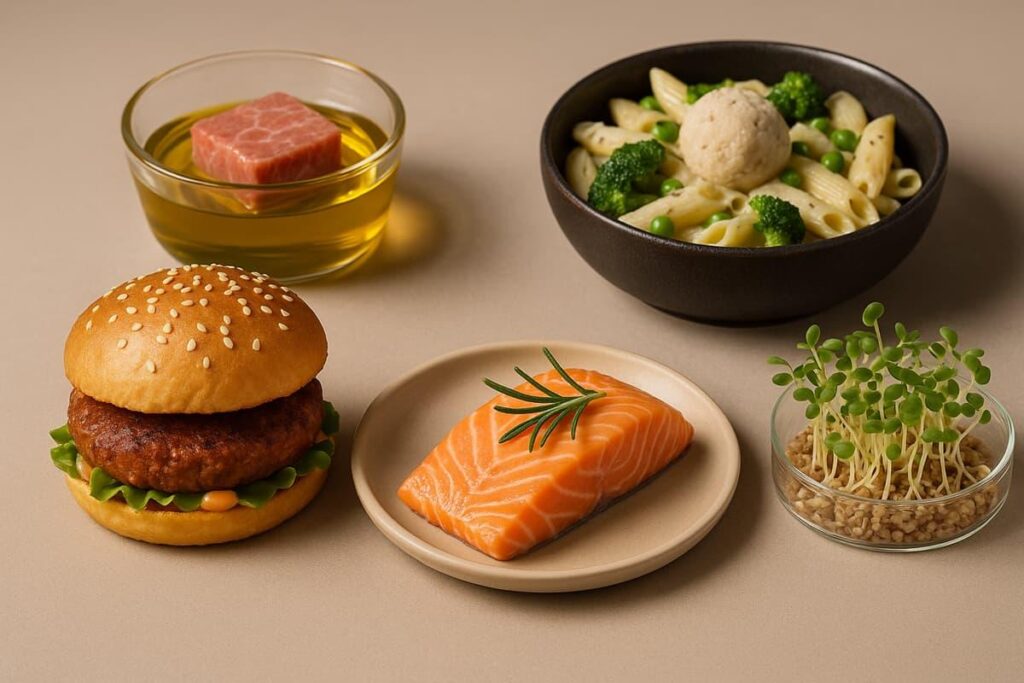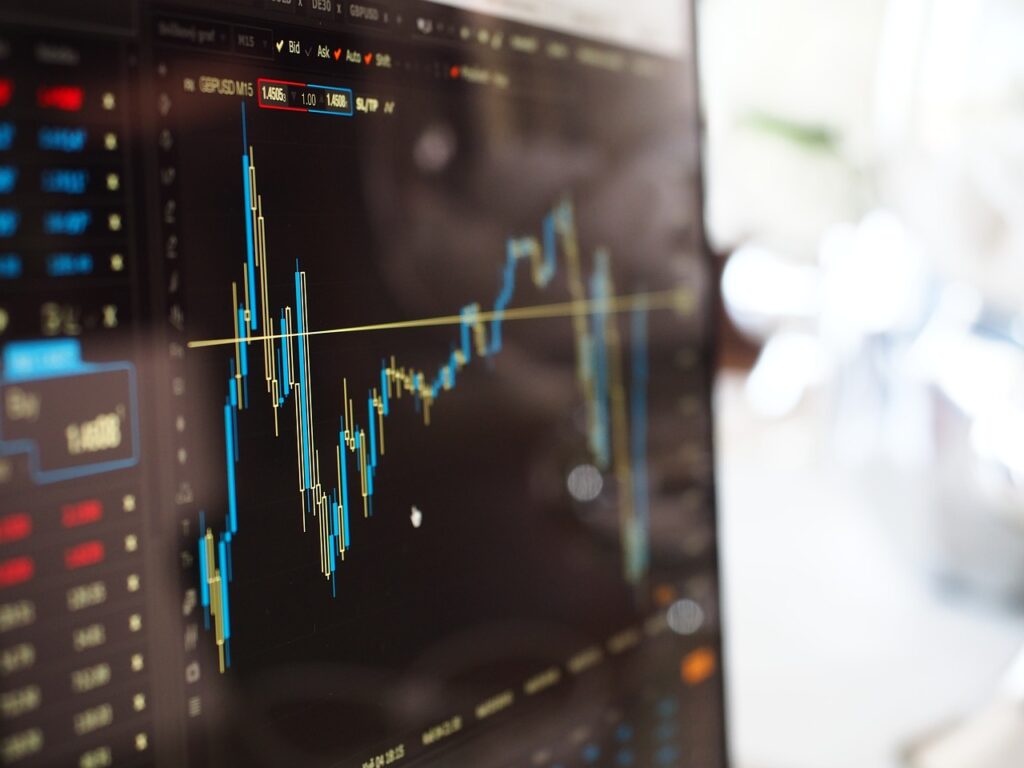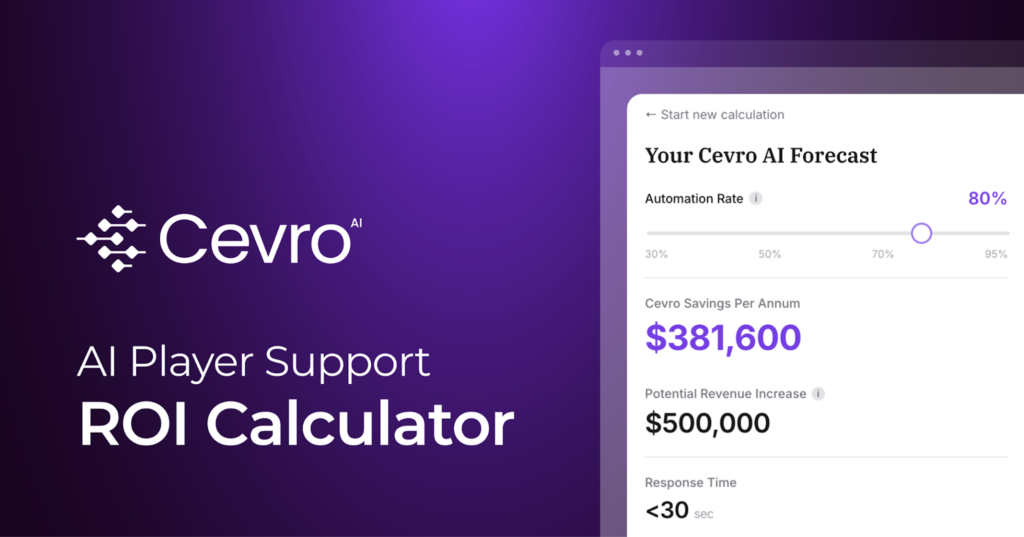Artificial intelligence (AI) has been transforming industries for years, and the food world is no exception. In 2025, AI is redefining how we grow, produce, and even choose our food. From personalized nutrition to lab-grown meat, technology is driving innovation at every step of the food chain.
But what exactly is AI doing in the kitchen, on the farm, and beyond?
Harnessing Data for Smarter Choices
AI thrives on data, and the food industry generates plenty of it. Tools like Tastewise, a consumer intelligence platform, are helping businesses analyze what people really want to eat. Restaurants, brands, and food manufacturers are using AI-powered insights to predict preferences and create menus or products that reflect those trends. It’s no longer about guessing what customers want; AI gives companies the data to meet demands faster and more effectively.
For example, AI can analyze millions of food photos on social media to reveal which dishes are trending. It can even identify patterns in what consumers are looking for, like plant-based options or specific flavor combinations. This level of insight is helping chefs and food creators stay ahead of the curve.
Growing Smarter with Precision Agriculture
AI is also changing how we grow food. Precision agriculture uses machine learning and sensors to maximize crop yield while minimizing waste. With tools like drones and smart irrigation, farmers can target specific areas of their fields and monitor conditions in real time. This means healthier crops using fewer resources like water and fertilizer.
AI-powered systems also help predict weather patterns and disease outbreaks earlier. Farmers can plan ahead, reduce risks, and ensure a steadier food supply year-round. These advancements are crucial as the global population grows and climate change continues to impact agriculture. AI is helping us produce food more sustainably than ever before.
Personalizing Food Like Never Before
Personalized nutrition is an exciting area where AI shines. People are becoming more interested in tailoring diets to meet their individual health goals, preferences, or dietary restrictions. AI tools can analyze your health data, preferences, and even your DNA to recommend meals that work best for you.
For instance, imagine getting food suggestions that focus on reducing inflammation or boosting energy based on your personal needs. AI can help identify micronutrient deficiencies or allergy risks that might have been overlooked before. This level of customization is changing how we think about food as medicine.
AI-powered meal-kit delivery services are also taking personalization into account. Companies are using customer data to suggest recipes that users are more likely to enjoy. This not only improves customer satisfaction but also reduces food waste by ensuring ingredients are more likely to be consumed.
Spotting the Latest Food Trends
When it comes to food trends, AI plays a major role in forecasting what’s next. Consumer behavior is constantly shifting, and staying ahead of trends is a challenge for many in the food industry. AI can analyze vast amounts of data from social media, blogs, reviews, and more to predict which ingredients, cuisines, or food products are about to explode in popularity.
For example, a sudden surge in turmeric-based recipes online could indicate rising demand for health-focused ingredients. Knowing this kind of information early allows brands and restaurants to adapt quickly. This means everything from rolling out turmeric lattes to creating new products infused with the spice before it becomes mainstream.
AI doesn’t just predict trends; it also evaluates their staying power. This helps avoid the hype traps and focuses on concepts likely to last, saving businesses time and resources.
Innovating in Food Product Development
AI isn’t just spotting trends; it’s also helping create entirely new foods. Think about plant-based meats, for instance. AI algorithms can analyze the chemical structure of animal proteins and replicate their textures and flavors using plant-based ingredients. This technology is why today’s meat alternatives taste so convincing.
Another area where AI plays a big role is in formulating recipes for packaged goods. Platforms like Tastewise help companies experiment with combinations of flavors, textures, and nutrients that appeal to specific audiences. AI can even test these creations virtually before they’re produced, saving companies from costly trial and error.
AI also contributes to packaging innovations. Smart packaging is being developed to monitor food freshness, reduce waste, and improve food safety. Imagine a yogurt container that changes color when the product is no longer safe to eat. These ideas are becoming a reality, thanks to AI.
The Future of Dining
AI is changing how we experience dining, too. Smart kitchens are making cooking easier for home cooks, with appliances that guide users through recipes step by step. AI-enabled apps are helping people choose restaurants or plan meals based on their mood, budget, or dietary restrictions.
Restaurants are also adopting robotics and automation in innovative ways. Robotic chefs are preparing meals with precision, while AI-powered systems are managing inventory to minimize waste. Even the customer service experience is evolving, with chatbots handling reservations and answering common questions.
While AI is helping restaurants run more efficiently, it’s also enhancing creativity. Chefs are collaborating with AI tools to design dishes that wouldn’t have been possible otherwise, blending unusual ingredients or techniques.
The Bigger Picture
AI’s impact on food innovation goes beyond convenience or profit. It’s also about creating a more sustainable and equitable food system. By reducing waste, optimizing resources, and making healthier food more accessible, AI has the potential to address some of the biggest global challenges related to food.
Still, it’s not without its challenges. Ethical concerns about data privacy, job displacement, and the cost of adopting AI are issues that need to be addressed. But if handled responsibly, AI could reshape how we grow, eat, and think about food in the years to come.
Wrapping Up
AI is revolutionizing food in ways that seemed like science fiction just a few decades ago. From tools like Tastewise helping brands track consumer needs to precision farming and personalized nutrition, the possibilities are endless. In 2025, AI will make it easier for us to eat what we love, stay healthier, and take better care of the planet. The future of food has never looked smarter.






